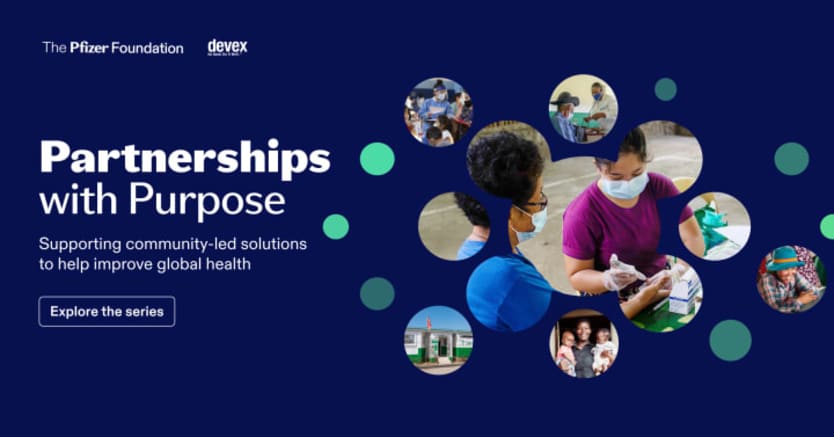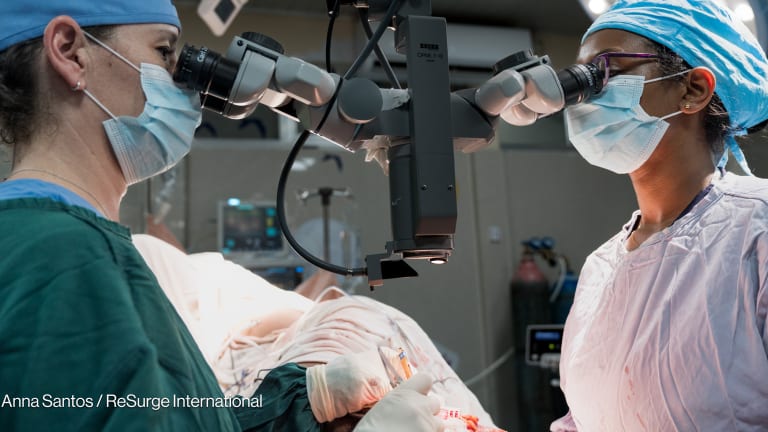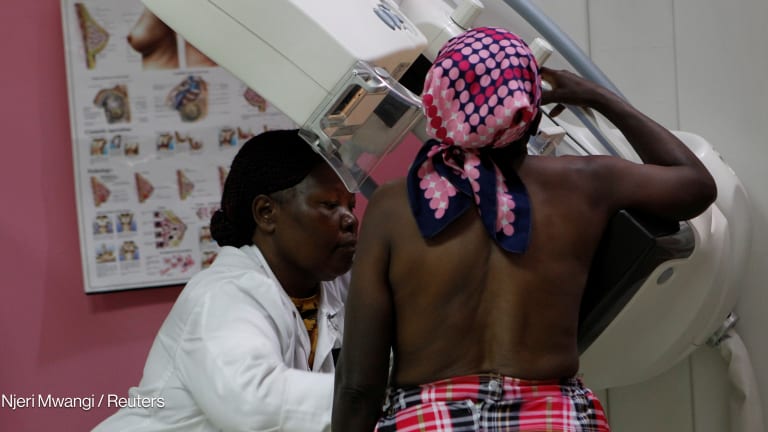
Women in Rwanda with breast cancer frequently face starkly different realities than their counterparts in higher-income countries. Diagnoses are often made at advanced stages of the disease, awareness of breast cancer screening is low, and numerous barriers — including geographic, socioeconomic, and cultural factors — stand in the way of timely care.
When Bernadette Narame, 66, from the rural village of Butaro in Rwanda’s Northern Province, first discovered a lump in her breast, she didn’t know what it meant.
“Cancer was not talked about at that time,” she said. “Despite the symptoms, I didn’t know it was breast cancer because [the lump] didn’t cause any pain.”
Over time, however, the lump began to cause discomfort and made it difficult for Bernadette to work on the farm. Encouraged by her friend and daughter, she visited the local health clinic, beginning a treatment journey that spanned from surgery at a nearby hospital to specialized radiotherapy at Kanombe Hospital in Kigali, more than 110 kilometers away.
Jeannette Mukashyaka, a 48-year-old woman from Nyagatare district in Rwanda’s Eastern Province, is also navigating breast cancer care. Diagnosed in 2023, Jeannette completed chemotherapy at the Butaro Cancer Center of Excellence and has been receiving radiotherapy at Rwanda Military Hospital, where long wait times are common due to limited equipment.
Explore this visual story capturing the challenges women like Bernadette and Jeannette face throughout their health care journey and how innovative partnerships are working to break down barriers to care, while strengthening health systems across the country.
Visit Partnerships with Purpose — a series amplifying innovative and community-led approaches to strengthen and scale global health systems.
This content is sponsored by The Pfizer Foundation as part of our Partnerships with Purpose series. Click here to learn more.









